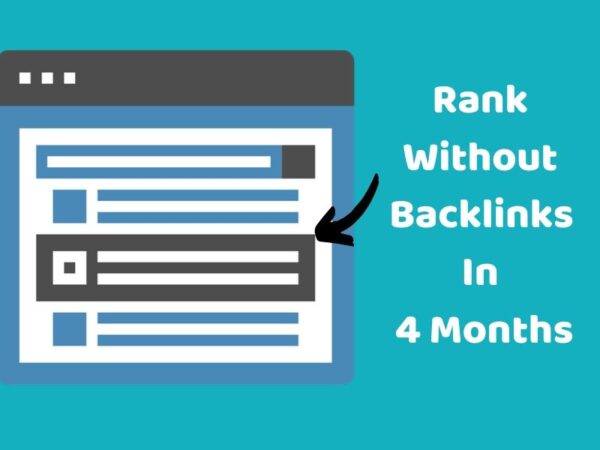When it comes to SEO, backlinks have long been considered one of the most crucial ranking factors. However, with Google’s evolving algorithms, it’s now possible to rank high on search engine results pages (SERPs) without relying on backlinks. This is particularly useful for new websites that struggle to acquire high-quality backlinks.
If you want to improve your rankings without backlinks, here are some key strategies to follow:
1. Focus on High-Quality Content
Google prioritizes content that provides value to users. If your content is in-depth, informative, and well-structured, it has a better chance of ranking without backlinks. Here’s how to create high-quality content:
- Conduct keyword research to find relevant topics with low competition.
- Write comprehensive content that answers user queries in detail.
- Use proper formatting with headings (H1, H2, H3), bullet points, and short paragraphs for better readability.
- Incorporate multimedia like images, infographics, and videos to enhance engagement.
2. Optimize for User Intent
Understanding user intent is critical in ranking without backlinks. Google ranks pages that best satisfy search intent. There are three types of search intent:
- Informational: Users are looking for knowledge (e.g., “how to rank on Google”).
- Navigational: Users are searching for a specific brand or website (e.g., “Google Search Console”).
- Transactional: Users intend to buy something (e.g., “best SEO tools for ranking”).
Make sure your content aligns with the search intent and provides the exact information users are looking for.
3. Improve On-Page SEO
On-page SEO plays a crucial role in ranking without backlinks. Here are some key aspects to optimize:
- Title Tag & Meta Description: Write compelling and keyword-rich title tags and meta descriptions.
- Header Tags: Use H1, H2, and H3 tags properly to structure your content.
- Keyword Optimization: Place primary and secondary keywords naturally throughout the content.
- Internal Linking: Link to other relevant pages on your website to help Google understand your content hierarchy.
- Image Optimization: Use descriptive file names and add alt text to images.
4. Leverage Long-Tail Keywords
Long-tail keywords are less competitive and easier to rank for. Instead of targeting highly competitive keywords like “SEO strategies,” focus on more specific keywords like “how to rank on Google without backlinks in 2024.” These keywords have lower search volume but higher conversion rates.
5. Enhance User Experience (UX)
Google ranks websites that offer a great user experience. Make sure your site is:
- Fast-loading: Use tools like Google PageSpeed Insights to optimize speed.
- Mobile-friendly: Ensure your site is responsive and performs well on mobile devices.
- Easy to navigate: Use clear menus and internal links to help users find content quickly.
- Secure (HTTPS): A secure website improves trust and SEO rankings.
6. Utilize Google’s Featured Snippets
Featured snippets appear at the top of Google’s search results and attract high organic traffic. To increase your chances of being featured:
- Provide direct and concise answers to common queries.
- Use bullet points or numbered lists for clarity.
- Include relevant keywords in your headings and subheadings.
7. Engage in Topic Clustering
Instead of writing standalone articles, create a content hub by linking related articles together. This helps Google understand your expertise in a subject and improves rankings without the need for backlinks.
8. Leverage Social Media and Forums
While social signals are not direct ranking factors, they can drive traffic to your website. Share your content on social media platforms, Quora, Reddit, and niche forums to increase visibility and engagement.
9. Keep Content Updated
Regularly update your content with fresh insights, statistics, and examples. Google prefers updated content over outdated ones, which can help improve rankings even without backlinks.
Conclusion
Ranking on Google without backlinks is possible if you focus on high-quality content, optimize for user intent, improve on-page SEO, and enhance user experience. By implementing these strategies consistently, you can achieve better rankings and drive organic traffic without relying on backlinks. Start optimizing today and watch your website climb the search rankings!




